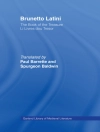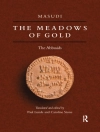In ‘Henry James — A Critical Study, ‘ Ford Madox Ford offers a penetrating exploration of the intricate narrative techniques and philosophical themes that define the works of Henry James. Ford employs a lyrical and analytical prose style, meticulously dissecting James’s unique approach to character development and psychological depth. The book situates James’s oeuvre within the broader context of late 19th and early 20th-century literature, responding to the shifting cultural landscapes of modernism and the intricacies of human consciousness. Ford engages deeply with seminal texts like ‘The Portrait of a Lady’ and ‘The Turn of the Screw, ‘ illuminating both their literary significance and the nuanced moral questions they pose. Ford Madox Ford, a fellow novelist and a contemporary of James himself, offers insights steeped in both admiration and critical rigor. His diverse experiences as a novelist, editor, and soldier inform his perspectives, providing a rich background that enhances his understanding of James’s complex narrative style. Ford’s own literary journey, marked by a commitment to modernism and a fascination with character psychology, aligns seamlessly with his subject, illuminating the influences and innovations that shaped James’s writing. This critical study is indispensable for readers seeking a deeper appreciation of Henry James’s literature. Ford’s eloquent prose and incisive analysis not only enrich the understanding of James’s contributions to literature but also invite readers to reflect on broader themes of individuality, morality, and the human experience. Whether you are a scholar or a casual reader, Ford’s study serves as a compelling entry point into the intricate world of one of literature’s most enigmatic figures.
Tentang Penulis
Ford Madox Ford, originally named Ford Hermann Hueffer before he changed his name during World War I, was an eminent English novelist, poet, critic, and editor famed for his contributions to literature in the early 20th century. Born on December 17, 1873, in Merton, Surrey, to a German music critic father and an English painter mother, Ford is perhaps best known for his novel ‘The Good Soldier’ (1915), a piercing exploration of Edwardian moral ambiguity and a landmark work in the modernist tradition. In addition to fiction, Ford’s oeuvre includes pioneering literary criticism; among these, ‘Henry James – A critical study’ published in 1913, offers a insightful analysis of the works of an author who was both his friend and a significant influence. Ford’s literary style often involved complex narrative structures and a keen psychological depth, utilizing the impressionist technique to convey the transient nature of reality.Co-editor of ‘The English Review’ and founder of ‘The Transatlantic Review, ‘ Ford helped to launch the careers of some of the era’s most influential writers and was an instrumental figure in promoting literary modernism. His personal and professional relationships, which included collaborations and friendships with figures like Joseph Conrad and Ezra Pound, overshadowed his literary output until renewed academic interest in the later 20th century restored Ford’s position as a key figure in the development of modern literature. Ford’s prolificacy and innovation have established him as a significant, if occasionally overlooked, architect of twentieth-century literary landscapes. He passed away on June 26, 1939, leaving behind a rich legacy that continues to be revisited and celebrated by scholars and readers alike.












